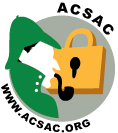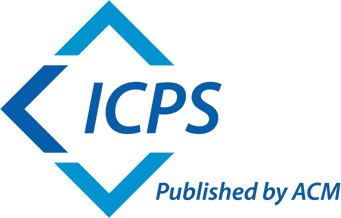2014 Annual Computer Security Applications Conference
Call for Case Studies
- When are case study presentations due?
- The deadline for submitting presentations is June 8 June 1.
- What is a case study presentation?
- If you are developing, implementing, or testing practical solutions to problems relating to protecting your country's information infrastructure or a commercial enterprise, consider speaking about your experience at the Case Studies Track in this year's Annual Computer Security Applications Conference. This internationally recognized conference provides a forum for experts in information system security to exchange practical ideas about solving these critical problems. The Case Studies Track is a critical part of the technical conference. It is an opportunity for professionals to share information that is current without writing a detailed technical paper. It is open to anyone in the community such as vendors, network providers, systems integrators, government civil/federal/military programs or users across the spectrum of computer security applications.
- How do I submit a case study presentation?
- Submit a short paragraph describing your proposed presentation to the Case Studies Chair. This paragraph should indicate how the case study is important and relevant to today's problems in computer security. Include enough detail that will allow us to distinguish your presentation from other less exciting or informative talks. We may ask for more information prior to accepting a presentation. Included in your submission you should indicate the presenter's:
- name and affiliation
- e-mail address
- phone number
- short bio
- abstract of presentation
Again, all proposals shall be submitted to the Case Studies Chair.
- What makes a good case study presentation?
- We are frequently asked what makes a good Case Study for ACSAC. One of the best ways to get ideas is to look at previous years' presentations to see what has been accepted in the past. Last year we had several demonstrations in conjunction with the presentations. Most of the recent presentations can be viewed on our web page, and we encourage presenters to take advantage of this resource. The Case Studies chair also welcomes questions as to whether a topic is appropriate for the conference. We will be happy to help direct you in a way that improves the opportunity for accepting your idea.
Some guidelines for good presentations are:
- Describes an application of security concepts or technologies used in a new way.
- Describes a security architecture
- Displays a clear understanding of the relevance of this presentation to related efforts and products, including references as appropriate.
- Is delivered without accompanying written material/
- Is timely (current topics)
Some things to avoid are:
- Presentations that could be used essentially unchanged as a sales or marketing pitches.
- Presentations that have been delivered before in a public forum, as a conference paper, magazine article, journal article, or book chapter.
We reserve the right to reject proposed presentations without review, if we believe they fall outside the guidelines for the conference.
- Is a case study published?
- The presentations are not published in the proceedings, but are posted on the ACSAC website after the conference. You will be asked to sign a release, and please be sure not to mark any materials "restricted", "proprietary" or "company confidential".
- What happens if my case study is accepted?
- If your presentation is accepted, presenters are required to register, pay, and attend the conference. Students are eligible for reduced price registration; all others (including conference organizers) are required to pay the registration fee. You will also be expected to either supply the link to your presentation or deliver a soft copy of the presentation by the date of presentation.
- Who do I contact for more information?
- If you have any questions, please feel free to contact the Case Studies Chair.






